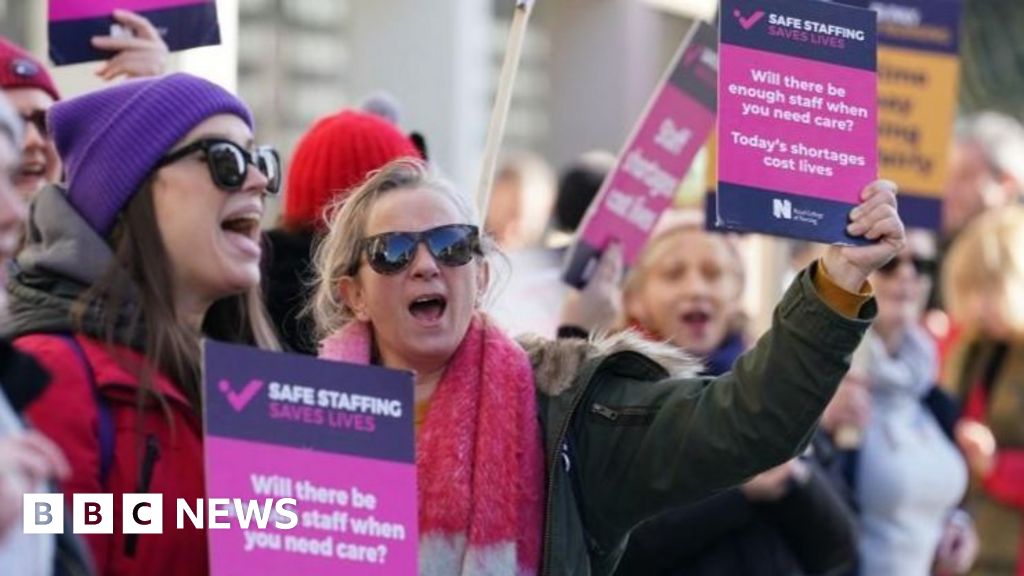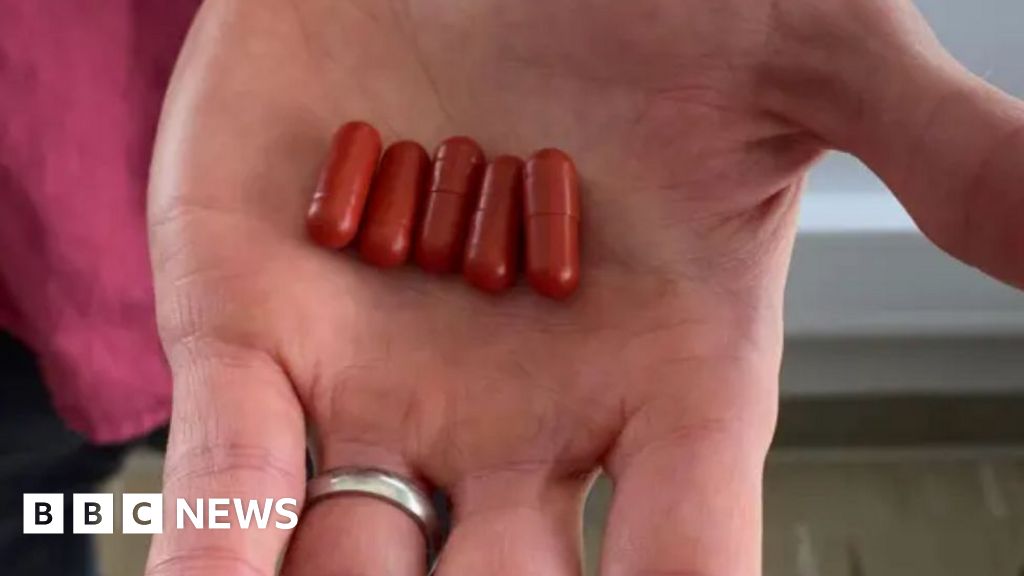ARTICLE AD BOX
By Charanpreet Khaira
BBC Wales News
Drug abuse: 'It grips you straight away', says recovering addict
There has been a sharp increase in the rate of deaths from drug misuse in Wales, according to new figures.
There were 210 deaths recorded in 2021, compared with 149 in 2020 - an increase of 41% - Office for National Statistics (ONS) figures showed.
The figure was also the highest since records began in 1993, with the previous record being 208 in 2018.
The Welsh government said every death was a tragedy and it would be investigating the increase.
The number of deaths per million people was higher in Wales than in England, which saw a far smaller rise in deaths.
However, due to backlogs in coroners' courts during the Covid-19 pandemic, some of the reported deaths would have been from the year before.
Charities working on the front line said the data showed old approaches to drugs are not working, and called for an urgent rethink of Wales' strategies.
Wales is currently pioneering new treatments, which recovering drug addicts said have had a positive impact on their condition.
One of those was Cullan Mais, who was addicted to heroin at 19, but has been taking a drug called Buvidal, which stopped him feeling the intense symptoms of withdrawal.
"Your confidence comes back, that ambition comes back," Cullan said.
Cullan, who started smoking cannabis as a teenager before becoming addicted to crack cocaine and heroin, said drugs were a way for him to control his OCD, anxiety and ADHD, all of which went undiagnosed until he went to prison.
Cullan Mais went to prison 11 times while funding his drug use
He funded his drug addiction through shoplifting, after stealing from family and friends, eventually going to prison 11 times.
Now 30, he described his first stint in HMP Birmingham as a "real eye opener".
"I thought that was going to be my only time in prison and it did genuinely scare me," he said.
"But when drugs like heroin come into play, it's never the only time."
Cullan Mais during a detox from his drug addiction
Cullan was caught in a cycle of reoffending and reusing drugs, but everything changed when his friend died from an overdose and he ended up in hospital. It was then he was offered Buvidal.
"It was probably the first time I was really scared of losing my life," he said.
While Cullan acknowledges Buvidal is not a "silver bullet" for everyone, it helped him.
He now has a girlfriend, a family, a home, and a podcast on which he has interviewed First Minister Mark Drakeford about drugs policy.
The Welsh government first approved the use of Buvidal in September 2019.
It is a new, injectable form of the drug buprenorphine, and can help users stop using heroin or methadone.
Unlike methadone or traditional buprenorphine, Buvidal injections can last for one month.
Charities in Wales said Buvidal was one of the ways Wales was starting to change its approach to drug addiction.
Newport-based Kaleidoscope said instead of punishing people for taking drugs, the focus was on reducing the harm to the drug user.
Martin Blakebrough, from the charity, said drugs need to be treated as a "public health issue" in Wales, "reducing the stigma of criminalising everyone who has a drug issue".
"Workers in Wales are taught to recognise those who have serious problems with drugs often has extreme trauma in their lives," he said.
Wales will become the first UK nation to have a nationwide peer-to-peer Naloxone programme, a drug which rapidly reverses an opioid overdose.
In 2021, the Welsh government and Gwent alcohol and drug service funded an eight-week pilot to train people with lived experience of addiction to give Naloxone to those at risk of overdosing.
The pilot was so successful, the training has been extended across Wales.
Leighton said being able to help other drug users who had overdosed meant he was "saving someone's life"
Leighton is one of the volunteers who has been involved with the project since the beginning.
Before he volunteered, he was still using drugs.
"I was going round in circles constantly, getting clean, relapsing, getting clean, relapsing," he said.
Now Leighton has broken that cycle.
"You're saving someone's son, someone's daughter, someone's father - it puts a smile on your face," he said.
George Charlton said Wales was leading the way, and everywhere else needed to catch up
George Charlton is also a former drug user, who is now known as "the Naloxone man" because of his work training people to use the drug.
"Typically, we don't see the good in people who use drugs," he said.
"This project reframes all of that and what we tell people is that their lived experience absolutely matters - that they've got like a qualification that nobody wants - they've got a street degree right and their street degree is involved in pain and trauma.
"And I would argue that when it comes to the peer led approach, Wales is definitely leading the way, so everyone's got to catch up."
Commenting on the rise in drug related deaths, the Welsh government said the latest increase was of "deep concern" and officials would be investigating the reasons behind the increase.
"Until now drug misuse deaths had fallen to the lowest level since 2014," a spokesperson said.
"We are working with the NHS, police and charities to tackle substance misuse and investing over £63m a year."
Meanwhile, a spokesperson from the UK government said its drug strategy would help rebuild drug treatment and recovery services in England, as well as tackling the criminal supply chains which fuel illegal drug markets.
"This will help to prevent nearly 1,000 deaths, deliver over 54,500 new treatment places, - a 19% increase on current numbers - and support 24,000 more people into recovery from substance dependency," they said.
If you need help or advice with any of the issues raised in this story please contact the BBC Action Line - information can be found here

 2 years ago
40
2 years ago
40








 English (US) ·
English (US) ·